9483
AiS
Session 8a


Joshua
Foster

Agenda
- MobLab Simulation: Let's go fishing!
- Case: OPOWER: Increasing Energy Efficiency through Normative Influence (A).
- Group problem: implementing a behavioural strategy for OPOWER.
Simulation instructions.
- The situation: there is an open-access fishery (i.e. a lake).
- What you do: choose how many fish to catch out of the lake.
- Your objective: strategically fish the lake in a payoff-maximizing way.
How it works.
- Everyone is randomly placed in groups of 4 on a lake with 160 fish.
- There will be five rounds of fishing. In each round, you will privately decide how many fish to catch.
- A round ends when either (1) everyone decides to stop fishing or (2) time runs out (45s per round).
- When the round ends, the remaining fish stock doubles (up to 160).
Determining your payoff.
- Your payoff is equal to the number of fish you caught, plus your share of the final round's fish stock.
- Example: suppose you caught a total of 85 fish and the final round had fish stock of 30.
- Then your payoff is $85+\frac{30\cdot 2}{4}=100$.
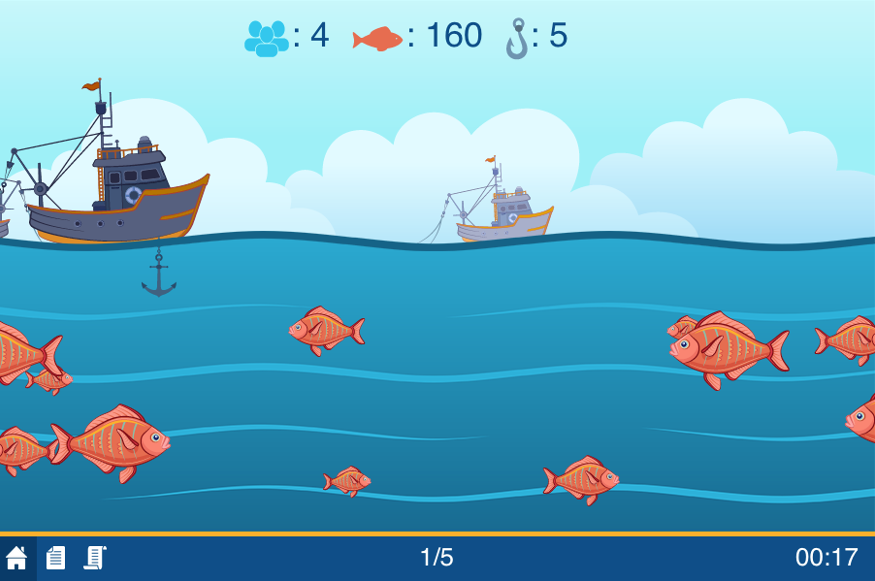
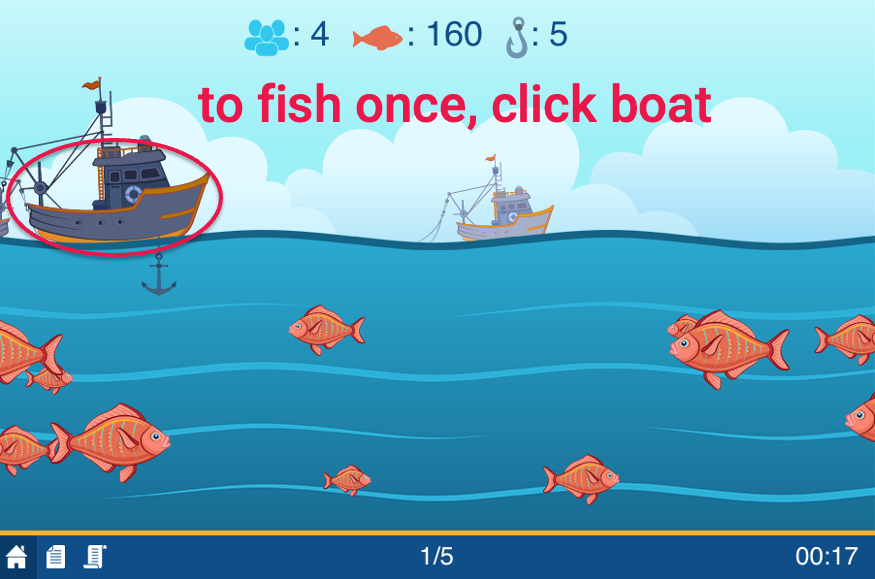
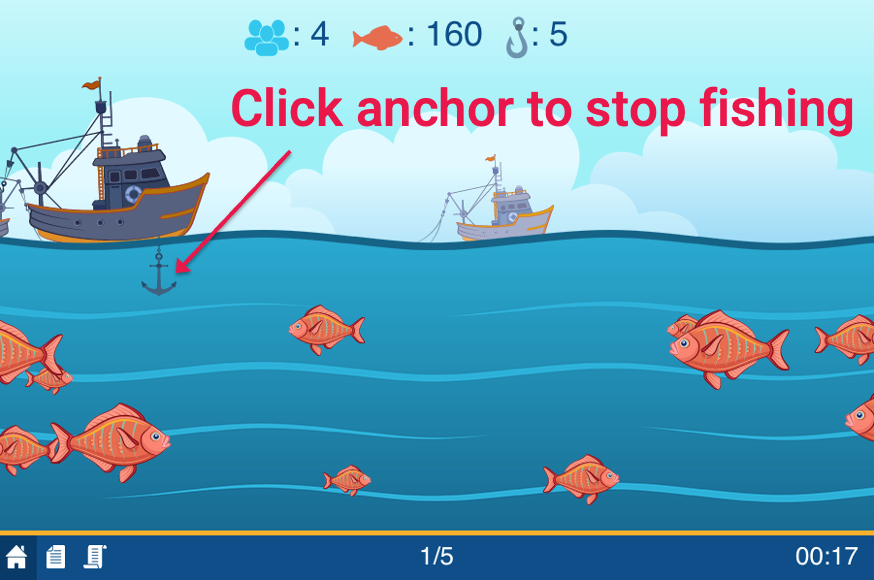
Questions?
What was your fishing strategy?
Tragedy of the Commons.
When a common resource is over-utilized because it is rivalrous and non-excludable.
Real-world examples?
How can climate change be understood as a Tragedy of the Commons?
What are some standard economic approaches to managing climate change?
What is OPOWER's innovation?
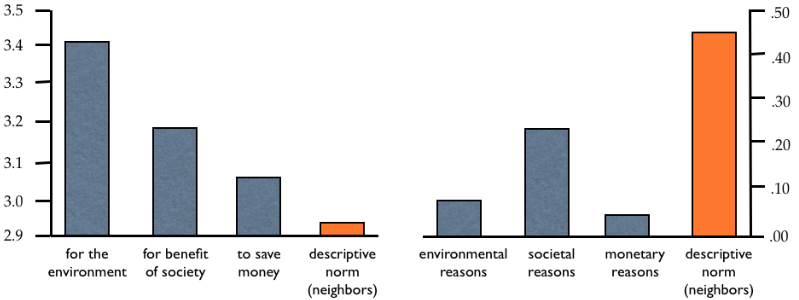
Descriptive norm.
Whether the behaviour was present.
Injunctive norm.
Whether the behaviour was socially appropriate.
How does OPOWER engage with these behavioural factors to reduce energy use?
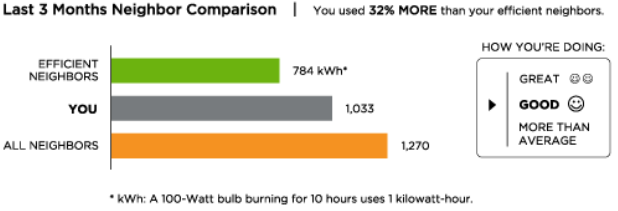
Problem: the "magnetic middle".
Mean reversion occurs when otherwise uninformed individuals learn they are better than average. Examples:
- Students learn they are below-average partiers.
- Energy users learn they are below-average consumers.
"But there was a way to avoid this phenomenon. Studies showed that layering an injunctive norm on top of the descriptive norm was effective in curtailing [this effect]. The key was to give individuals data on their behavior relative to the average and to provide reinforcement or approval to those who had already embraced the promoted behavior."
The task.
Design three messages (High / Average / Low users).
- Assume High is +18%, Average is ±3%, and Low is –15% vs peers.
- Rules: no average anchor for low users; apply praise + commit; use identity; provide specific next action.
- Write one Do-Not-Use line that would cause a magnetic middle.
- Specify a mini test (e.g. outcome metric, success rule).
| Group 1 | Alan Hwang | Aaditya Geed | Kayla Vargas | Chaitanya Gandhi | Alice Wu |
| Group 2 | Akber Amanulla Khan | DHDan Hicks | Sean Morris | Quoc Lap Nguyen | Kiera Treloar |
| Group 3 | Derek Adam | Ramnik Minhas | Josh Ge | Angelita Martin | Elisabeth Iannucci |
| Group 4 | Maro Egbedi | Calvin Zehr | Adam Meadows | Aanal Patel | Michael Schumacher |
| Group 5 | Sam Macy | Ishani Adityan | Jennifer Estrada | Mac Astritis | Sangeetha Sambamoorthy |
| Group 6 | Silvia Pacheco Diaz | Sifan Wang | Rio Baudisch-McCabe | Kendall Zhang | May El Damatty |
| Group 7 | Princess Adeniran | Cherry Qian | Judith Osemeke | Ishi Khamesra | |
| Group 8 | Iain Smith | Robert Gray | Valentina Efionayi | Bella Natasha Diego |
Small Group Task
Work with your group to design three messages for high (+18%) / average (±3%) / low (–15%) users, and specify your outcome metric / success rule.
Key takeaways.
Some markets suffer from self-inflicted failures.
- Tragedy of the commons for finite resources.
- Free-riding for "infinite" resources.
Behaviourally, social norms demonstrate non-pecuniary incentives are important considerations when designing markets and policies.